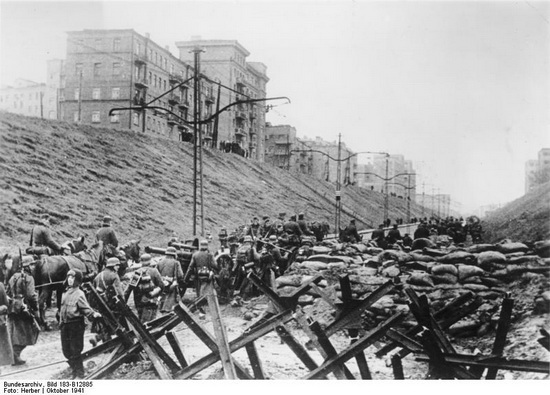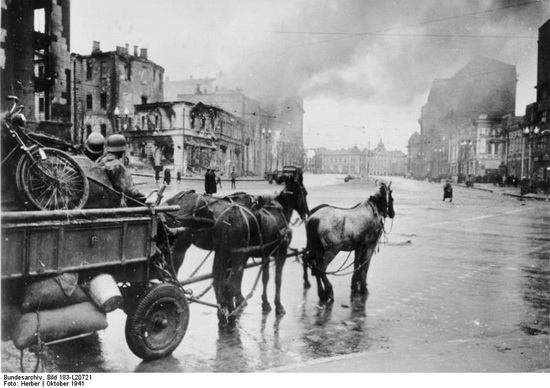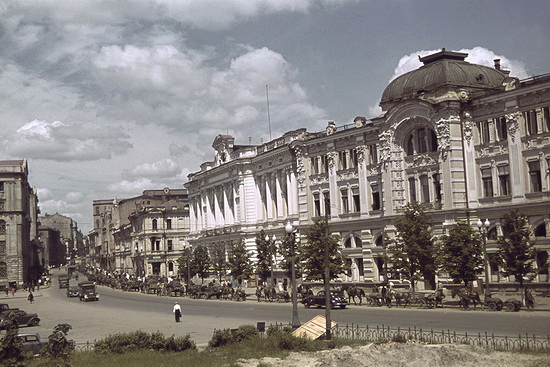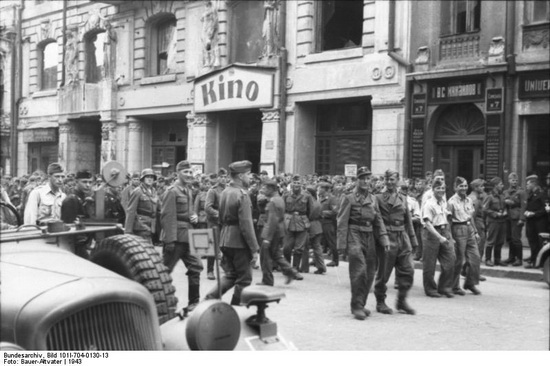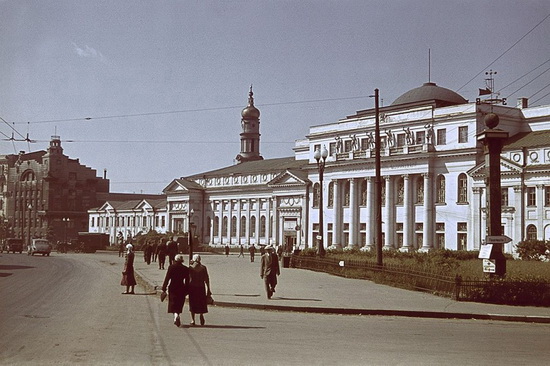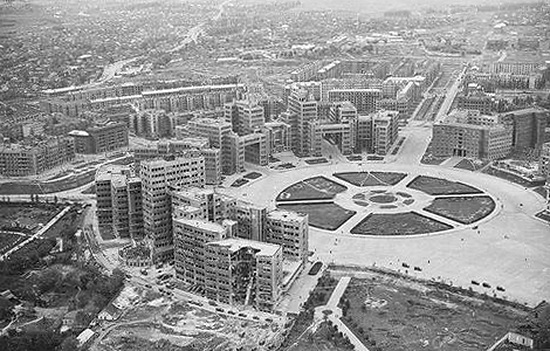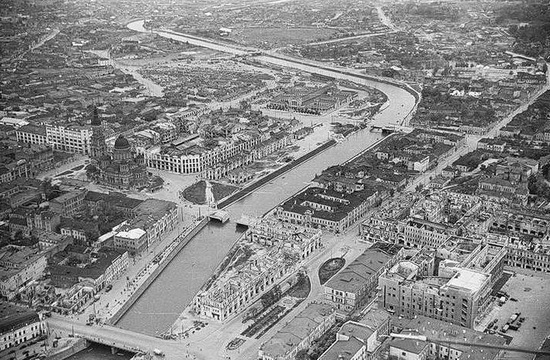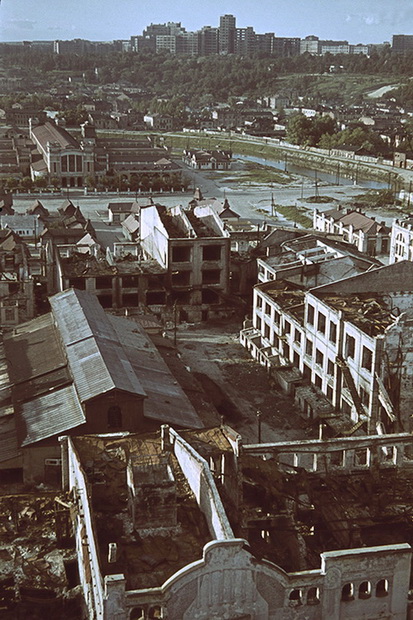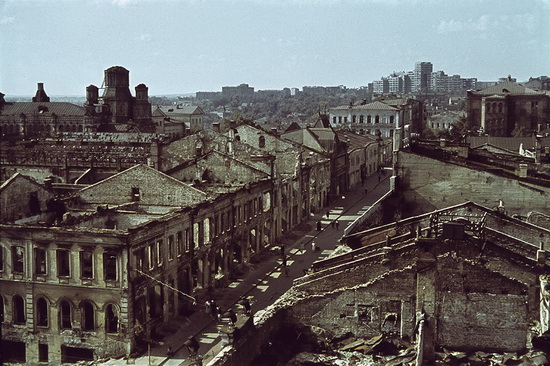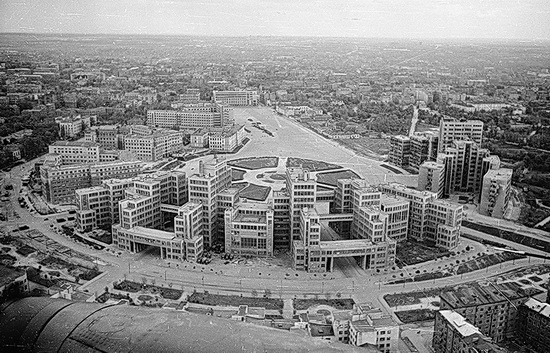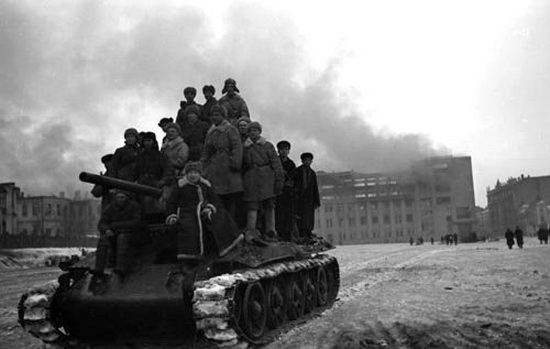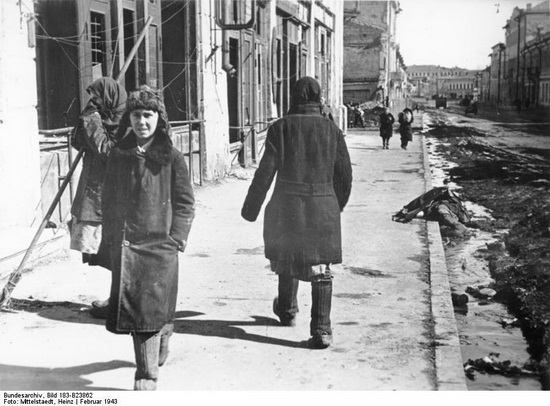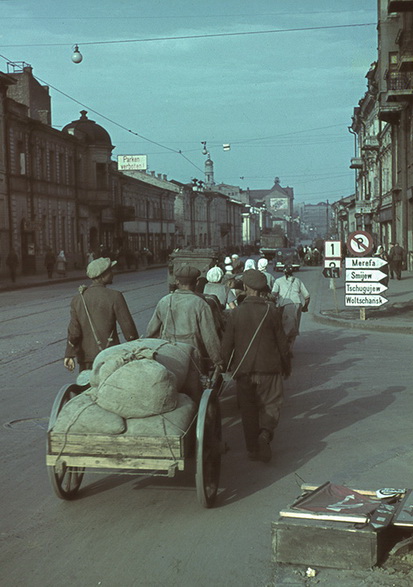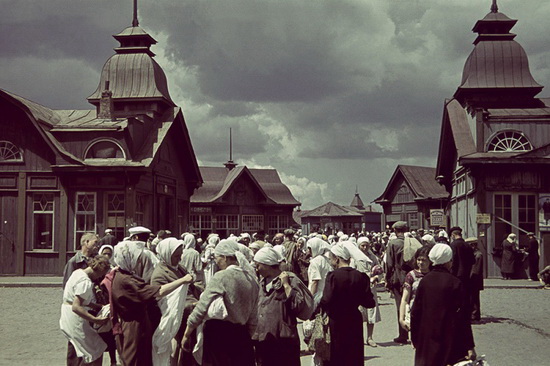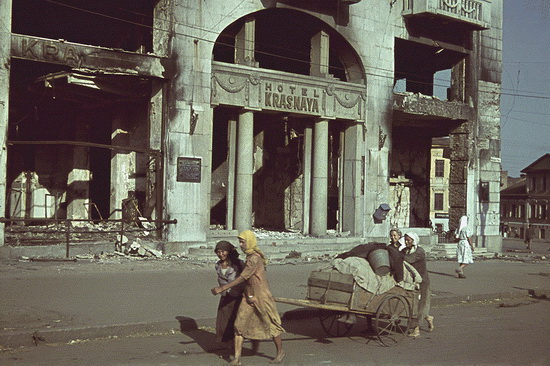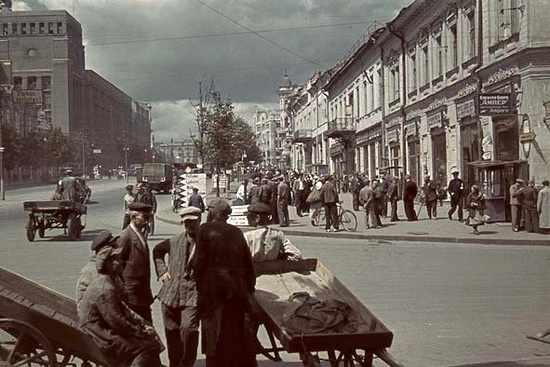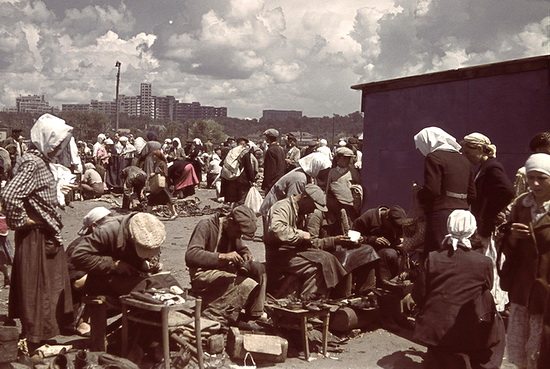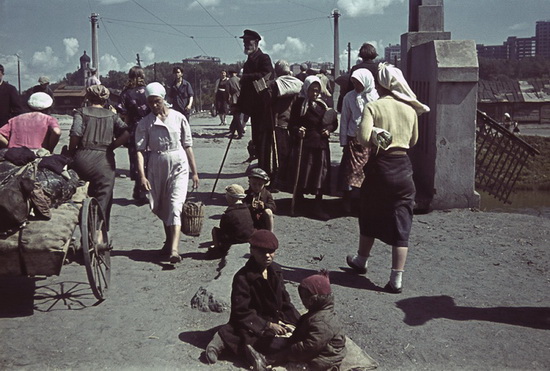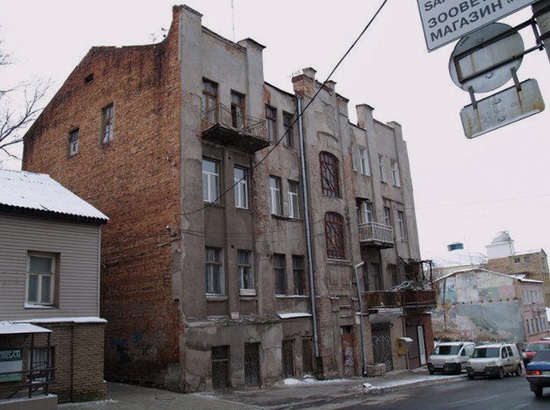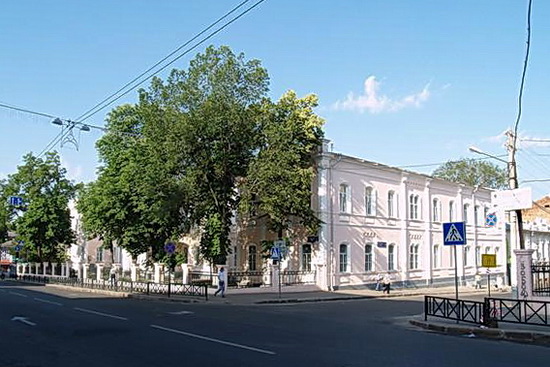Сергей Голубицкий
«Бизнес-журнал» №2 от 07 Февраля 2011 года.
«Через 20 лет в мире останутся только две компании:
всё производить будет Foxconn, а продавать — Wal-Mart Stores».
Популярная шутка среди тех, кто в теме
В июне 2006 года лондонский таблоид Daily Mail опубликовал осуждающий наезд на китайскую фабрику в Лонгхуа, производящую музыкальные плееры iPod для Apple. 30 тысяч бесправных рабов за кров и похлебку вкалывали на потогонном производстве, напоминающем трудовой концентрационный лагерь: повсюду — колючая проволока, охранники на КПП, работники перемещаются по территории строевым шагом, не хватало только собак и характерных окриков «Шнеллер-шнеллер!» Даже имя у фабрики, и то говорящее — Foxconn [1].
Понимающие люди сразу догадались, что бульварной газете до участи китайских рабочих дела мало: Apple заказали конкуренты. Не случайно все последующие рецидивы борьбы за права человека и всплески праведного гнева средств массовой информации в адрес китайского потогонного производства совпадали по срокам с выходом на рынок триумфальных гаджетов Стива Джобса: iPhone 3GS, iPad, iPhone 4.
Как бы там ни было, но в 2006 году впервые засветилось имя китайского «контрактного производителя» Apple, о котором ранее ведали лишь посвященные профессионалы, — Foxconn. Заинтригованная общественность принялась копать глубже и глазам своим не поверила: взору предстал не очередной безымянный мастер наколенной сборки из Поднебесной, а колоссальное предприятие, чьи обороты в полтора раза превышают обороты заказчика (Apple). Вот лишь несколько ключевых показателей Hon Hai Precision Industry (Foxconn — торговое имя тайваньской компании):
920 тысяч работников (!!!);
оборот: 79 миллиардов долларов (2008 г.);
чистая прибыль: 2,36 миллиарда долларов (2008 г.);
крупнейший экспортер Китая;
крупнейшая компания Тайваня;
12 производственных мощностей в 9 городах континентального Китая; остальные фабрики разбросаны по миру: в США, Японии, Великобритании, Чехии, Венгрии, Бразилии, Мексике, Индии, Вьетнаме, России;
полный список заказчиков и производимой продукции держится в строжайшем секрете; из того же, что всплыло на поверхность: Foxconn изготавливает mac-mini, iPod, iPhone и iPad для Apple, игровые приставки PlayStation 2 и PlayStation 3 для Sony, игровую приставку Wii для Nintendo, xBox 360 для Microsoft, электронные «читалки» Kindle всех поколений для Amazon.com, сетевое оборудование для Cisco, материнские платы для Intel, компьютеры для Dell и Hewlett-Packard, комплектующие для IBM, телефоны для Nokia и Motorola, а также материнские платы и видеокарты под собственной маркой WinFast.
Сказать, что производственный список «Хон Хай» впечатляет, — значит ничего не сказать. Перед нами практически вся линейка самой востребованной на рынке продукции индустрии 3C [2]. При таком раскладе шутка из эпиграфа даже и не кажется гиперболой.
Поразительно, однако, как «Хон Хай» удавалось скрывать свои истинные масштабы до самого последнего времени под шапкой-невидимкой! Компания свято блюла промышленные тайны своих заказчиков, а Терри Гу, отец-основатель и генеральный директор, вел неприметный образ жизни, категорически отказывался от интервью и камуфлировал 6 миллиардов долларов личного состояния официальным годовым окладом в размере 30 центов (1 тайваньский доллар). Даже штаб-квартиру компании укрыли от посторонних глаз на третьем этаже отгрузочного дока в промышленном пригороде Тайбэя Тучень [3] — чем не иллюстрация гангстерских фильмов из Голливуда!
Впрочем, маскировочных действий предпринимать не требовалось: именно здесь, в Грязном городе, «Хон Хай» и появился на свет в 1974 году. История восхождения Терри Гу написана в лучших традициях rags-to-riches [4]. Одолжив у родителей 7 400 долларов, Терри купил два формовочных пресса и принялся отливать пластиковые ручки для переключения телевизионных каналов. За ручками последовали коннекторы, которыми «Хон Хай» в начале 80-х соединял джойстики с игровыми приставками Atari.
В середине 80-х Терри Гу отправился в турне по Соединенным Штатам, где на протяжении 11 месяцев демонстрировал чудеса коммивояжерского искусства. Прикатывал в незнакомый город, арендовал там длинный-предлинный и не менее безвкусный «Линкольн», заваливался прямо с улицы в компьютерные компании и предлагал свои услуги: любые коннекторы, любые шлейфы, любые блоки питания, любые корпуса, любые кабели — и всё это по цене в 10 раз ниже той, что у вас есть сейчас!
Из Америки Гу вернулся победителем с длиннющим списком производственных заказов, на вершине которого красовался сам Голубой гигант — IBM! Дело было за малым: заказы эти выполнить. В конце 80-х Тайвань испытывал кризис перепроизводства, а сильная местная валюта и высокие зарплаты усложняли конкуренцию на внешнем рынке. Предприниматели в спешном порядке выводили производство в Юго-Восточную Азию — Индонезию, Сингапур, Малайзию и Таиланд. Терри Гу, один из немногих, решил попытать счастья на исторической родине.
И не прогадал. Поднебесная, отпугивавшая тайваньских предпринимателей коммунистической идеологией, давно уже созрела для массового производства: привлекательность миллионной армии работников, готовых вкалывать 24 часа в сутки за символические деньги, усиливалась практически полным отсутствием конкуренции со стороны местных управленцев. Не считать же таковыми красных директоров и начальников цехов на социалистическом производстве, приученных «культурной революцией» лишь исправно брать под козырек да выполнять спущенные сверху пятилетние планы?
Расторопный Тайвань быстро воспользовался удачным стечением обстоятельств: высококлассные бизнесмены, получившие MBA в лучших университетах США и Европы, с легкостью направляли в нужное русло энергию исполнительных люмпенов, лишенных долевых амбиций.
Вслед за IBM договор о производственном аутсорсинге с Foxconn подписали Compaq, Hewlett-Packard, Apple и Dell. Ради эксклюзивных отношений Терри Гу шел на любые уступки. Захотел Майкл Делл, чтобы Foxconn наладил производство у него под боком (для упрощения контроля) — пожалуйста! «Хон Хай» купил готовую фабрику в Канзас-Сити и запустил линию по сборке компьютерных корпусов. Себе в убыток. Зато — товар лицом. Зато — показал себя. И зарекомендовал. Сегодня Foxconn изготавливает практически всё, что продает Dell. Под ключ. И делает это в Китае.
Самое привлекательное для западных заказчиков в «Хон Хае» — его умение хранить производственные тайны. Как в могиле. Единственная утечка случилась летом 2009 года, когда 25-летний Сан Даньён из отдела снабжения засветил прототип iPhone 3GS, а затем от горя и стыда наложил на себя руки. Конкуренты, разумеется, не преминули списать трагедию на счет «негуманной и военизированной системы управления, игнорирующей фундаментальные права человека». Но Apple расставил акценты точно: выразил соболезнование родственникам Сана и подтолкнул Foxconn к правильной компенсации: брат Сана получил 44 тысячи долларов, а подружка — новенький Macbook Pro.
Кому-то подобная реакция работодателя может показаться закономерной, однако для «Хон Хай» — это грандиозный скачок в развитии собственного социального имиджа. В 2006 году, когда двое китайских журналистов по стопам London Daily Mail осмелились опубликовать в China Business News свою версию упреков, Foxconn молниеносно подал в суд за клевету и добился заморозки личных банковских счетов правдолюбов. Потребовалось решительное вмешательство Apple и Hewlett-Packard, объяснивших тоталитарному могулу, что его непропорциональная мстительность катастрофически подрывает имидж брендов в западном полушарии. История с Сан Даньёном тем более показательна, что служба безопасности Foxconn и до инцидента с iPhone 3GS несколько раз фиксировала «пропажи» прототипов у неуравновешенного сотрудника.
В 2010 году компания Терри Гу уже демонстрировала чудеса выдержки и здравомыслия. К торжественному появлению на рынке планшета iPad и нового поколения смартфонов iPhone 4 конкуренты Apple оркестрировали блестящие массовые истерии: ведущие мировые СМИ как по мановению волшебной палочки поведали общественности о цепочке самоубийств, случившихся на заводах «Хон Хай» в Китае. Вызванных, разумеется, все тем же звериным презрением к «правам человека».
Реакция Foxconn достойна хрестоматии. Для начала руководство остудило публику статистикой. Оказалось, что уровень самоубийств на заводах компании в девять (!) раз ниже, чем средний по Китаю. Затем — дезавуировало слухи о «концлагере»: у «Хон Хай» лучшие в Китае условия проживания рабочих, лучшая система питания на производстве — с блюдами региональной кухни в меню и даже — о чудо! — полагающимся каждому труженику вареным куриным яйцом на завтрак, — высокий заработок с гарантией своевременной выплаты (вообще редкость, потому как рабочих в Китае кидают везде и постоянно) и высокие сверхурочные, которые, в отличие от общепринятой практики, оплачиваются по утвержденной государственными нормативами таксе.
PR-акцию «Хон Хай» завершил на бодрой ноте: объявил о 30-процентном повышении заработной платы, украсил общежития боксерскими грушами с изображением начальников цехов (молоти себе на здоровье — снимай стресс, только не убивайся!), набрал в штат буддистских монахов для регулярных молебнов на производстве, создал телефон доверия, обещал каждому настучавшему на потенциального самоубийцу по 30 долларов, организовал фестиваль искусств, обмотал общежития стальной сеткой [5] и торжественно обещал больше не допускать сегрегации тайваньскими управленцами континентальных пролетариев. Apple мог гордиться своим учеником.
* * *
Предлагаю теперь читателям препарировать тайваньского гиганта на предмет выявления черт и обстоятельств, обеспечивающих «Хон Хай» уникальное место в системе трансконтинентальных экономических отношений. Это знание тем более важно, что сегодня как на Западе, так и в России доминируют вздорные и опасные мифы относительно китайской производственной доминанты. Общая тенденция этих мифов: стабильная недооценка опасности, связанной с диспропорциональным смещением производства в одну точку политической карты мира. Итак:
Миф первый: Творческое бесплодие Азии
Китай, мол, напрочь лишен эвристической мысли, единственно способной оплодотворить высокотехнологичный продукт. Изготовить комплектующие, отлить стальные шаблоны, собрать на конвейере — это пожалуйста, а вот самим что-то придумать — тут пас.
Развенчание этого мифа не составит труда: достаточно взглянуть на пример тайваньской HTC, долгие годы выполнявшей, подобно «Хон Хай», производственные заказы мировых брендов в сфере наладонных устройств — Compaq, Hewlett-Packard, Sony, Fujitsu-Siemens. Пять лет назад HTC решила выйти из тени и выступить под собственным брендом. И каков результат? Полное уничтожение всей конкуренции, создание длинных линеек собственной продукции, которая по технологичности практически недосягаема для бывших «заказчиков». Сегодня HTC тотально доминирует не только на старом рынке устройств под управлением Windows Mobile, но и на зарождающемся рынке Android.
По аналогии можно предположить, что если по каким-то соображениям пути Foxconn и Apple разойдутся, тайваньский монстр просто завалит мир собственными аналогами айфонов и айпэдов, которые уничтожат пионера бренда да хоть бы пятикратно сниженной ценой.
Сегодня НИОКР Foxconn и других азиатских «контрактников» развивается бешеными темпами, подкрепленными многомиллиардными вливаниями капитала. Самые последние цифры: Терри Гу выделил 1 миллиард долларов на строительство крупнейшего исследовательского центра на Тайване. Откуда возьмутся знания и ноу-хау? Для начала: компания уже зарегистрировала 25 тысяч (!) собственных патентов и разработок. Если окажется мало, доберут остальное, скупив в готовом виде, либо по старинке «позаимствовав» и «творчески доработав»!
Миф второй: в ответ на самостоятельную экспансию Азии Запад закроет свой рынок запретительными таможенными пошлинами.
В результате азиатское производство захлебнется, потому что на внутренних рынках Китая невозможно реализовать продукцию в привычных объемах.
В самом деле: откуда взяться покупателям айфонов в стране, где люди в охотку пашут за 100 долларов в месяц? Ну что вы! Это обманчивая иллюзия! Во-первых, китайский рынок совершенно безбрежен уже в ближайшей перспективе. Яркое доказательство: автомобильный рынок Китая, который на наших глазах превращается в Центр Мира. Гибкая система кредитования, дополненная государственным субсидированием, позволит полутора миллиардам китайцев покупать аналоги айфонов ничуть не в меньших количествах, чем они покупают уже сегодня автомобили. Во-вторых, не нужно забывать, что привычная для нас цена в 800-1 200 долларов за iPhone 4 — не более чем аберрация западного консьюмеризма. Китай уже сейчас буквально завален контрафактами и аналогами «надкусанового счастья» по цене, не превышающей 100-150 долларов.
Миф третий: у Foxconn и всей азиатской промышленности нет главного: умения и возможности создавать тренд.
Супертехнологичную электронную игрушку собственной разработки, может, и соберут, но вот заставить Запад ее покупать — ни в жисть!
К сожалению, это тоже заблуждение. Опровержением служит упомянутый HTC, он уже который год подряд создает не только высокотехнологичные, но и архимодные коммуникаторы на Windows Mobile и Android, и те разлетаются в Мюнхене, Лондоне, Париже и Москве как горячие пирожки. А вот еще: взгляните на Samsung, который из дизайнерского уродца (чего стоят одни только гигантского размера буквы логотипа, упорно наносимые производителем на лицевую сторону всех своих гаджетов!) превратился в создателя самого совершенного и популярного (после iPhone, разумеется) коммуникатора наших дней — Galaxy S.
Короче говоря, надеяться на то, что Foxconn и его младшие китайско-тайваньско-корейско-сингапурские братья проявят скромность и откажутся от того, чтобы перетянуть на себя все одеяло без остатка, не приходится. Думаю, это лишь вопрос времени.
Взглянем теперь на составляющие успеха «Хон Хай». Помимо праздного любопытства («Каким образом маленькая лавочка превратилась в крупнейшего в мире производителя 3С?») [6], напрашивается еще и прагматический мотив («Что мы можем этому монстру противопоставить?»).
Сразу скажем: в империи Терри Гу нет ничего оригинального. Все задействованные им методы управления и векторы развития давно и хорошо известны, однако в случае «Хон Хай» речь идет об исключительно гармоничном и удачном совмещении всего традиционного наследия.
В основе корпоративной культуры «Хон Хай» лежит принцип вертикальной интеграции. Желая перестраховаться от непредвиденных сбоев в поставке тех или иных составляющих, способных сорвать выполнение заказов в жесткие сроки, Foxconn пытается все производить самостоятельно — от проводочка, винтика, разъема и шлейфа до материнских плат и жидкокристаллических экранов. Вертикальная интеграция, как уже было сказано, не является спецификой компании Терри Гу и давно уже используется всеми корейскими чаеболами.
Динамику производства «Хон Хай» определяет концепция органичного роста, которая предполагает постепенное и неспешное наращивание собственных мощностей, а не поглощение сторонних компаний. В таком подходе Foxconn достаточно оригинален, поскольку его главные конкуренты в области «контрактного производства» — сингапурский Flextronics и канадcкая Celestica — предпочитают более традиционный («пожирательный») подход.
Культура управления «Хон Хай» целиком и полностью выстроена на традиционной китайской модели. В ситуации, когда империя огромна (920 тысяч служащих!), а император один (Терри Гу), власть приходится делегировать. Но делается это не путем ее распределения между правителями локального уровня (менеджерами среднего звена), а за счет перенесения «концепта власти» в головы подданных. Звучит, конечно, устрашающе, на практике же реализуется на ура. Даже название для подобной «трансплантации» в истории есть подходящее — культ личности!
Императору не хватает рук, чтобы дотянуться до каждого исполнителя? Не беда! Будем управлять на уровне сознания. Управление и власть с окриков и репрессий на улице переносится в головы подданных. В этих головах закладывается фундамент подчинения через обожествление руководителя. На всех фабриках Foxconn висят портреты Терри Гу в компании видных политических и партийных шишек Поднебесной. В заводских книжных лавках продаются биографии Отца-основателя, а также — угадали! — «Цитатник Гу», наполненный такими же легко запоминающимися банальностями, что и у Великого Кормчего [7].
* * *
Пора подводить итоги. Что же прикажете делать с тайваньским монстром? Как противостоять его натиску? Боюсь, никак. Запад сегодня (включая Россию!) абсолютно не в состоянии противопоставить Foxconn что-нибудь путное. Ни один из рецептов быстрого производственного роста и доминирования, задействованных Терри Гу на своих предприятиях, не работает в нашей цивилизации как минимум последние лет 50. Даже в России, не особо избалованной изобилием, у работников — отличные от китайцев запросы, отличная дисциплина, отличные традиции и отличные трудовые отношения с начальниками и «императорами».
А посему остается смириться с китайским доминированием в мировом производстве и выстраивать собственные противовесы. Скажем, развивать переработку сырья, чтоб хотя бы торговать производными продуктами, а не позорным нефтегазом. Ну и, конечно же, вооружаться, потому как рано или поздно к нам придут и попросят добровольно поделиться излишками. И тогда разговорами о былом могуществе и величии не отделаешься.
——————————————————————————–
1 Fox — лисица, Con — уголовник, зек (англ.).
2 Computer — компьютеры, Communication — коммуникации, и Consumer-electronics — бытовая электроника.
3 Грязный город (мандаринск.).
4 Из грязи в князи, американская мечта (англ.).
5 Все 14 самоубийств 2010 года были связаны с прыжками из окон и с крыш зданий.
6 А в последнее время — и 4С, поскольку «Хон Хай» к своим традиционным Computers, Communications и Consumer Electronics в 2010 году добавил еще и Cars — цифровое оборудование для автомобилей!
7 Вот к примеру: «В каждой организации самое важное — это лидер, а не управление. Лидер должен проявлять готовность стать диктатором для всеобщего блага».
©
